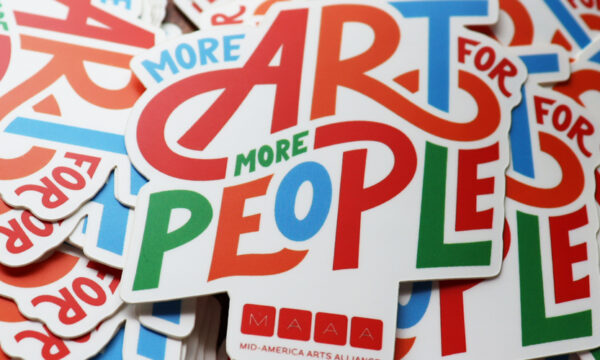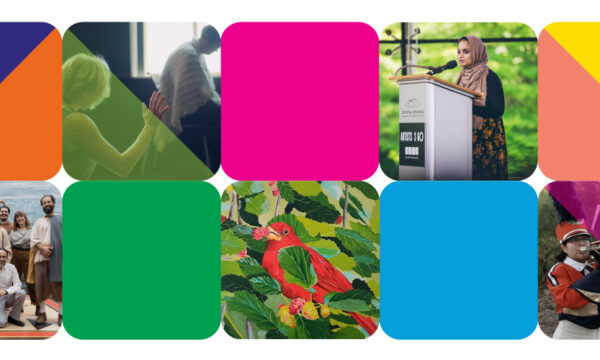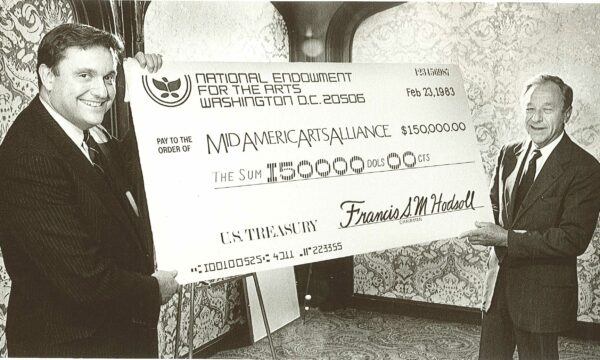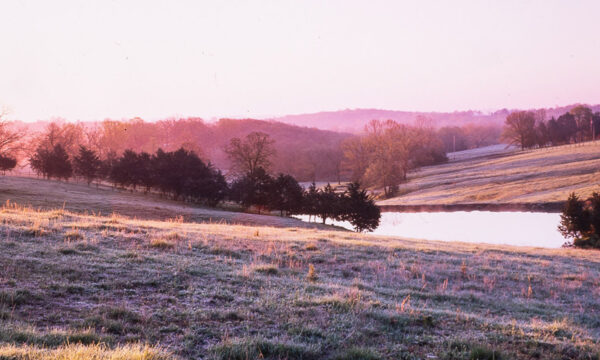Mission, Vision, and Values
Empowering community through art
Mid-America Arts Alliance (M-AAA) believes art can be a catalyst for expression, connection, collaboration, and community. This philosophy is reflected in our mission and values.
M-AAA is a nonprofit, regional arts organization representing Arkansas, Kansas, Missouri, Nebraska, Oklahoma, Texas, and beyond. We focus on strengthening communities and improving lives by supporting artists, elevating arts organizations, and connecting people to extraordinary cultural experiences.
Our Mission
M-AAA strengthens and supports artists, cultural organizations, and communities throughout the region and beyond.
Our Vision
More art for more people.
Our Values
Mid-America affirms the following values, and commits to embracing and holding ourselves accountable to these principles in all of our work:
- Freedom of cultural and creative expression is fundamental to humanity.
- The arts and humanities encourage empathy and further the understanding of diverse cultures and traditions.
- Collaborations and partnerships leverage creativity, resources, and experience to expand possibilities.
- Thriving arts communities contribute to prosperous, successful societies.
- Service to the arts ecosystem of the region is infused with innate curiosity and a creative approach to innovation, within an environment that allows for risk taking and ongoing learning.
- Commitment to equitable policies, inclusive practices, and celebration of the rich diversity of our region permeate our organizational structure and our service to the region.
-

Mission, Vision, and Values
Mid-America Arts Alliance (M-AAA) believes art can be a catalyst for expression, connection, collaboration, and community. This philosophy is reflected in our mission and values. M-AAA is a nonprofit, regional arts organization representing Arkansas, Kansas, Missouri, Nebraska, Oklahoma, Texas, and… -

Past Annual Reports
Just as it was at our founding in 1972, more than 50 years ago, Mid-America Arts Alliance continues to develop and nourish collaborative relationships to increase access to the arts and creativity for all Americans. Read more about how we… -

Our History
In 1972, civic leaders from four Midwestern states came together to create an organization that would improve access to arts and creativity for people in the mid-America region. They believed that the arts could have greater reach and impact through… -

Our Region
Six states make up the Mid-America Arts Alliance region, and we’re proud to represent and support them: Arkansas, Kansas, Missouri, Nebraska, Oklahoma, and Texas. The collaborations and partnerships M-AAA has cultivated with these states and their State Arts Agencies help…





